Are you passionate about storytelling and preserving the rich narratives of faith within your community? Our faith-based oral history project aims to capture the diverse experiences and journeys of individuals who have been shaped by their beliefs. By collecting these compelling stories, we hope to foster deeper connections and understanding among different generations and cultures. Join us as we explore these powerful testimonies and invite you to read more about how you can contribute to this meaningful endeavor!
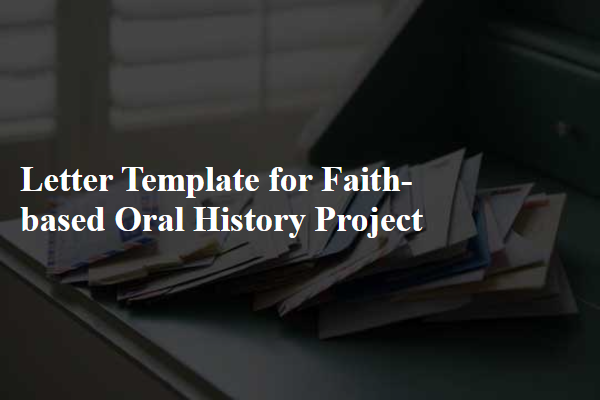
Purpose and goals of the project
The faith-based oral history project aims to document and preserve personal narratives and testimonies within specific religious communities, highlighting transformative events, traditions, and cultural heritage. Participants will share their experiences, faith journeys, and the influence of spirituality in their lives, contributing to a rich repository of collective memory. Recorded interviews will serve as educational resources for future generations, offering insights into the role of faith in shaping identity and community cohesion. The project seeks to foster intergenerational dialogue, promote understanding among diverse beliefs, and strengthen the bonds within the religious community while honoring individual stories as valuable reflections of faith.
Participant's role and contribution
Participants in the faith-based oral history project play a significant role in preserving cultural narratives and personal testimonies connected to their religious experiences. Each participant's voice, rich with unique stories, shapes the collective memory of their faith community, accentuating events such as community service initiatives, church mission trips, and religious celebrations. Engaging with individuals from diverse backgrounds, including different religious denominations and generations, enhances the project's depth and authenticity. Through their contributions, participants not only document pivotal events, like annual religious festivals or interfaith dialogues, but also share personal reflections on spiritual growth, challenges faced, and community building. Recording these testimonies can serve as a lasting legacy for future generations, fostering a deeper understanding of the role faith plays in everyday life.
Confidentiality and data protection measures
Confidentiality in faith-based oral history projects is paramount for protecting participants' identities and personal stories. Measures include obtaining informed consent, clearly outlining procedures for data handling, and anonymizing recordings or transcripts. Data storage must utilize secure servers and encryption methods, ensuring only authorized personnel access sensitive information. Regular training on ethical standards and data protection regulations is critical for all team members involved in the project. Participants should be informed about their rights, including the ability to withdraw their stories at any point, maintaining trust and transparency throughout the oral history process.
Contact information for inquiries and support
Inquiries regarding the faith-based oral history project, focusing on recording and preserving the experiences of individuals from diverse religious backgrounds, can be directed to our project coordinator. The project aims to document personal narratives related to significant faith events, community gatherings, and individual transformations within various spiritual traditions. Contact details for support include the project email address, [insert email], and a dedicated phone line, [insert phone number], where team members are available to assist from Monday to Friday, 9 AM to 5 PM. Additionally, further information is accessible through our website, featuring project updates, participant stories, and volunteer opportunities within the oral history initiative.
Invitation for collaboration and involvement
The faith-based oral history project invites individuals to share their unique narratives that reflect spiritual journeys and community experiences. This initiative aims to document diverse faith expressions within various religious traditions, including Christianity, Islam, Buddhism, Hinduism, and Judaism. Participants are encouraged to recount personal stories, influential events, and significant milestones that have shaped their beliefs. Oral histories serve as essential resources for understanding the impact of faith on individual lives and broader societal contexts. The project will culminate in a published collection, contributing to educational resources and fostering interfaith dialogue. Engaging with this collaborative effort enriches our understanding of cultural heritage and the profound role of spirituality in human experience.
Letter Template For Faith-Based Oral History Project Samples
Letter template of inquiry for participation in faith-based oral history project
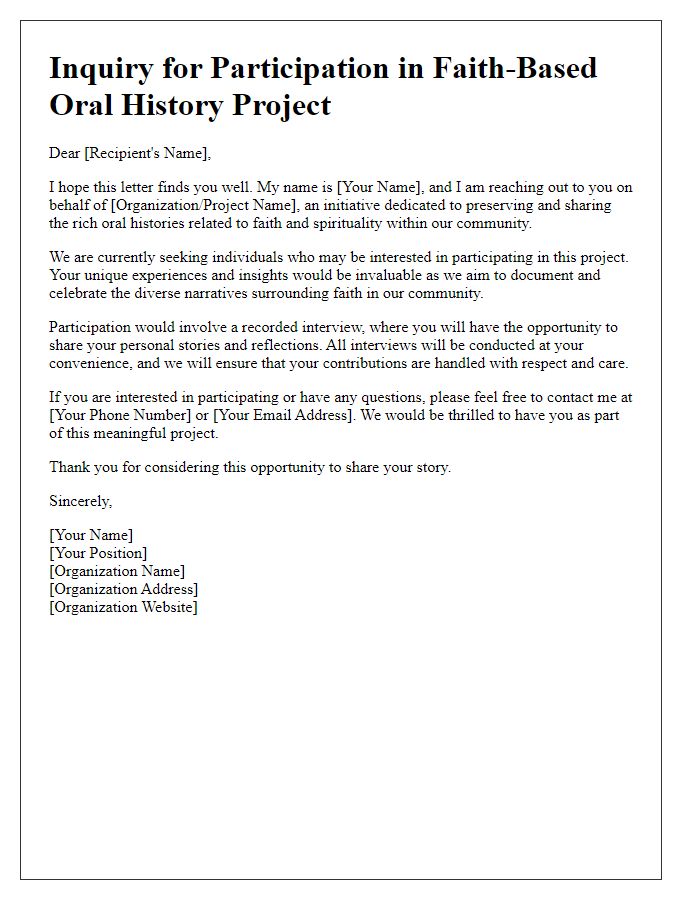
Letter template of invitation to faith community members for oral history interviews
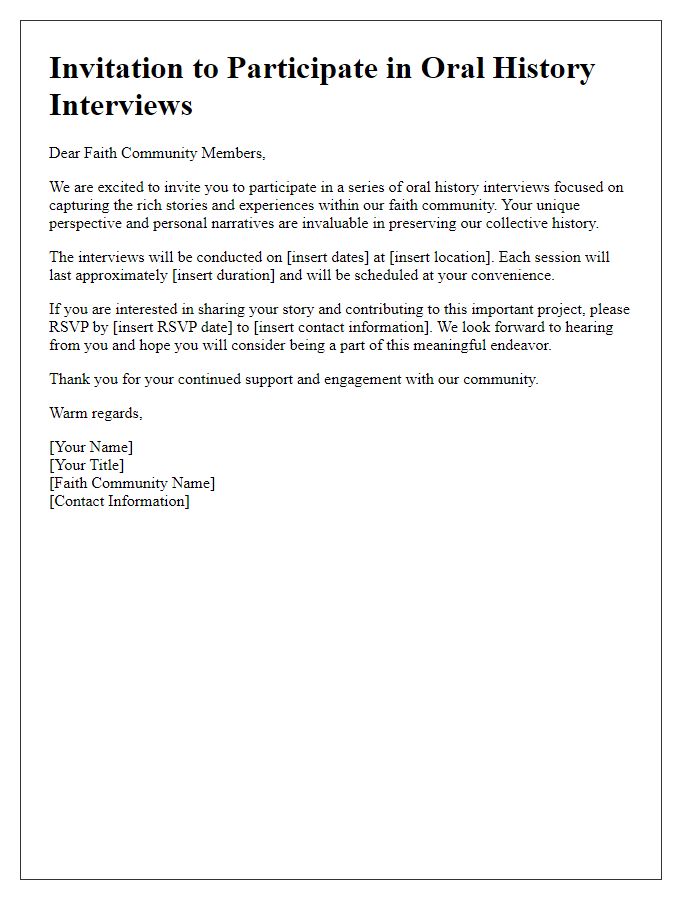
Letter template of appreciation for participation in faith-based storytelling
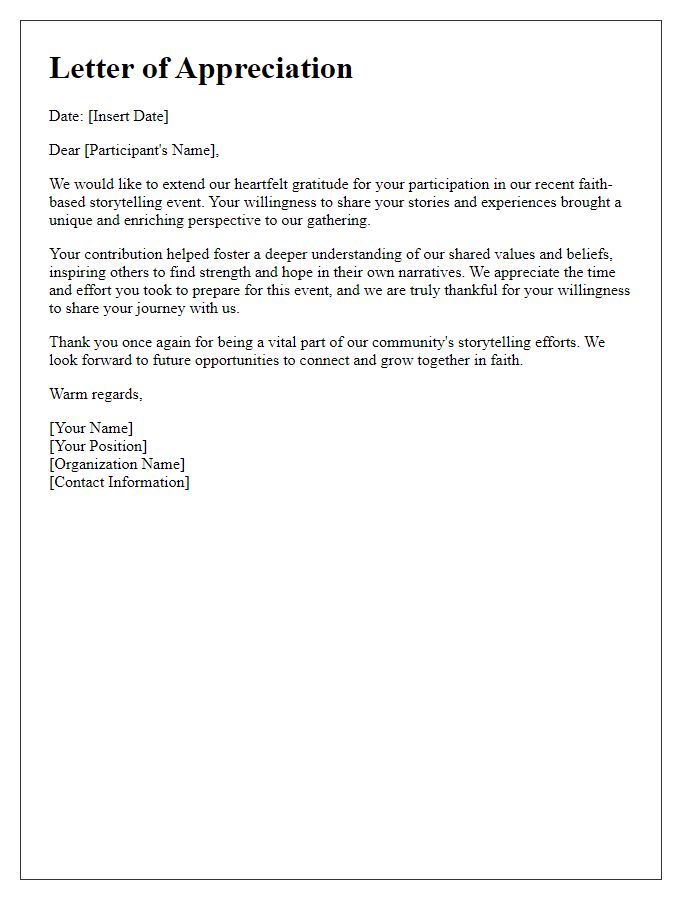
Letter template of request for archival materials related to faith history
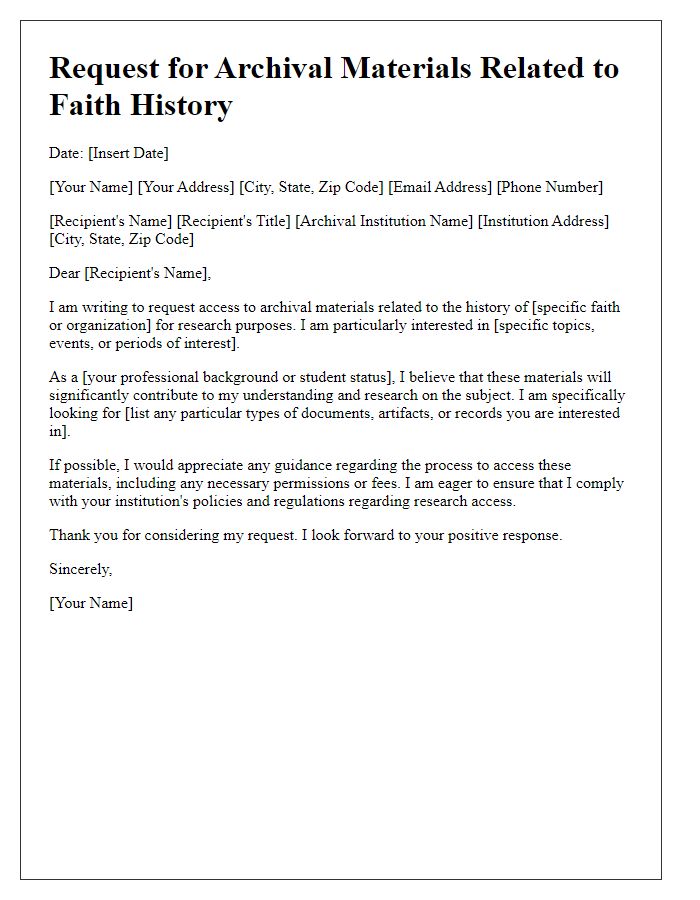
Letter template of follow-up for participants in faith oral history project
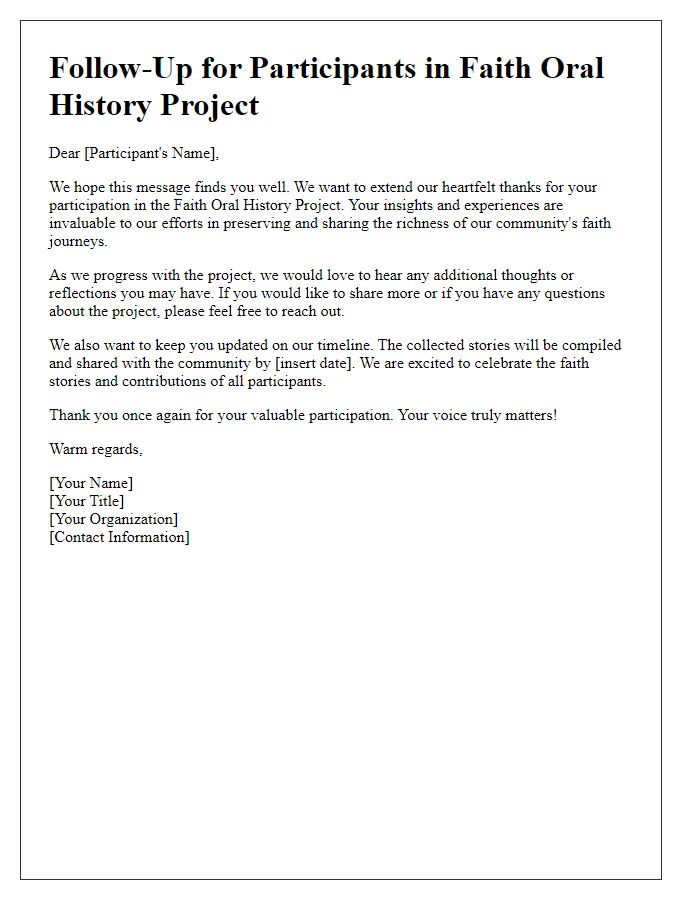
Letter template of project overview for faith-based oral history project participants
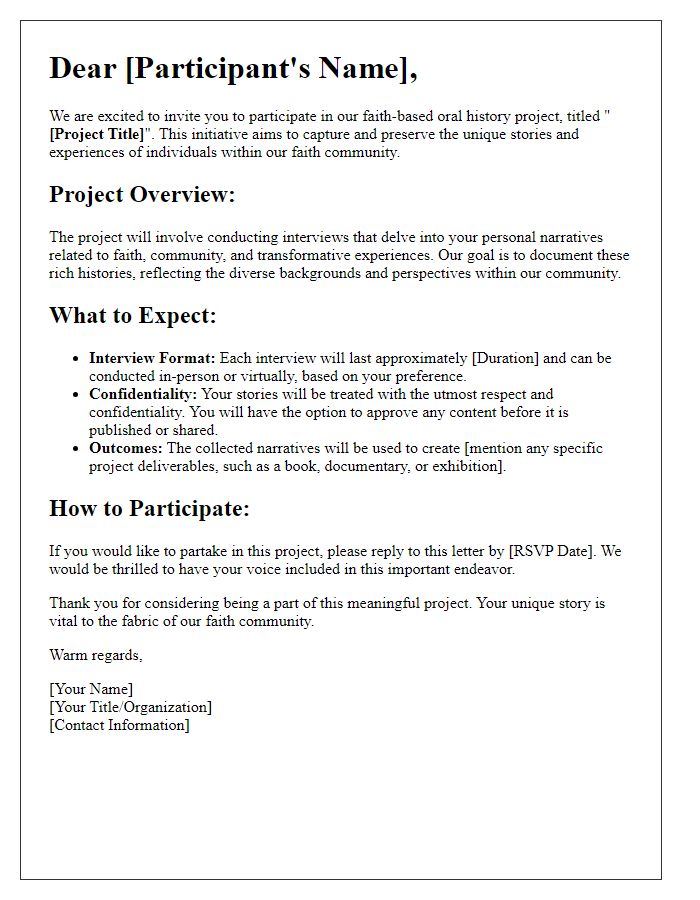
Letter template of reminder for upcoming oral history interviews in faith context
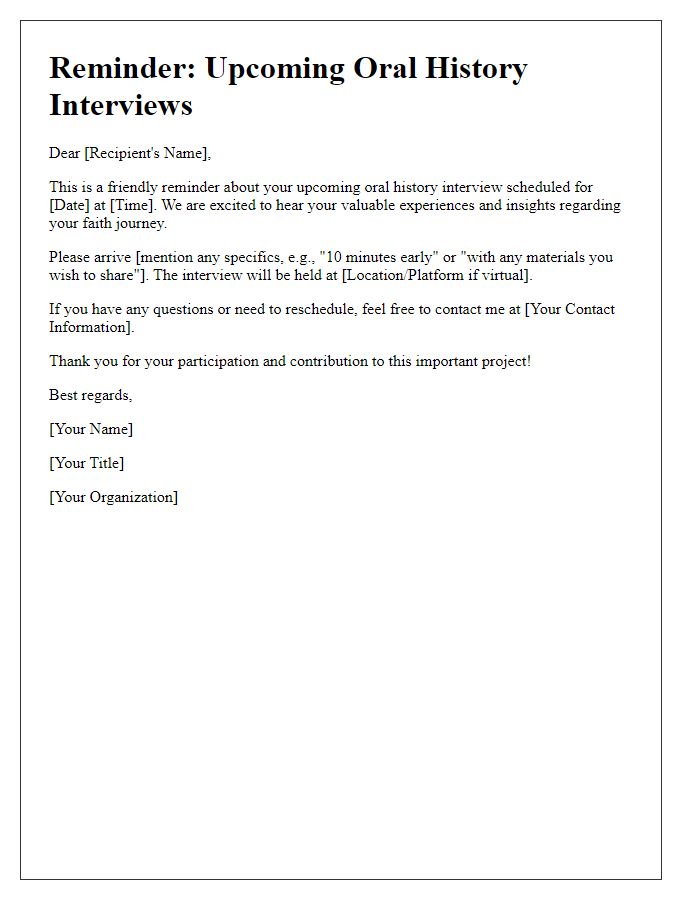

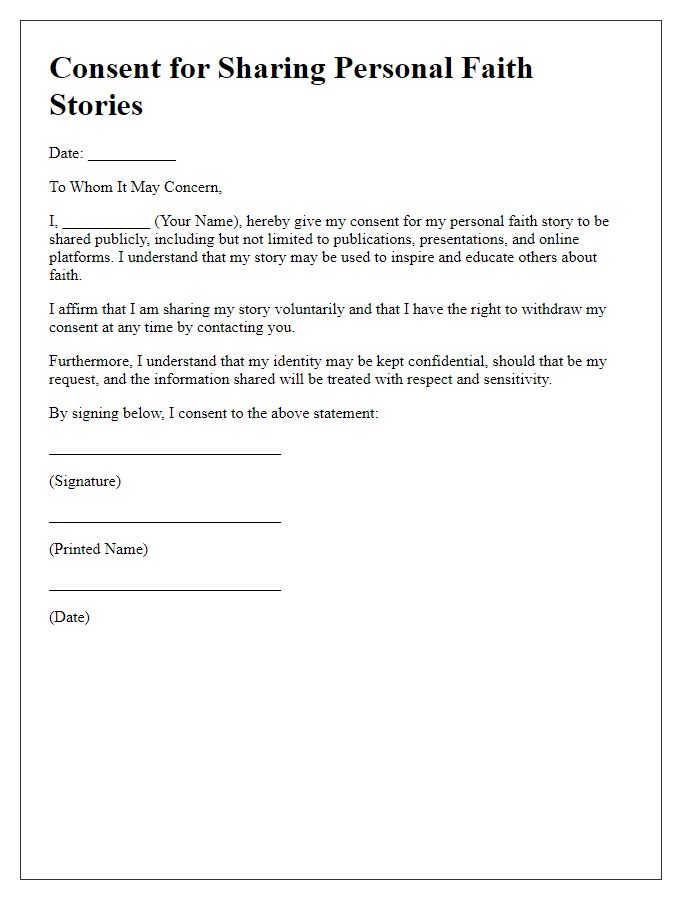
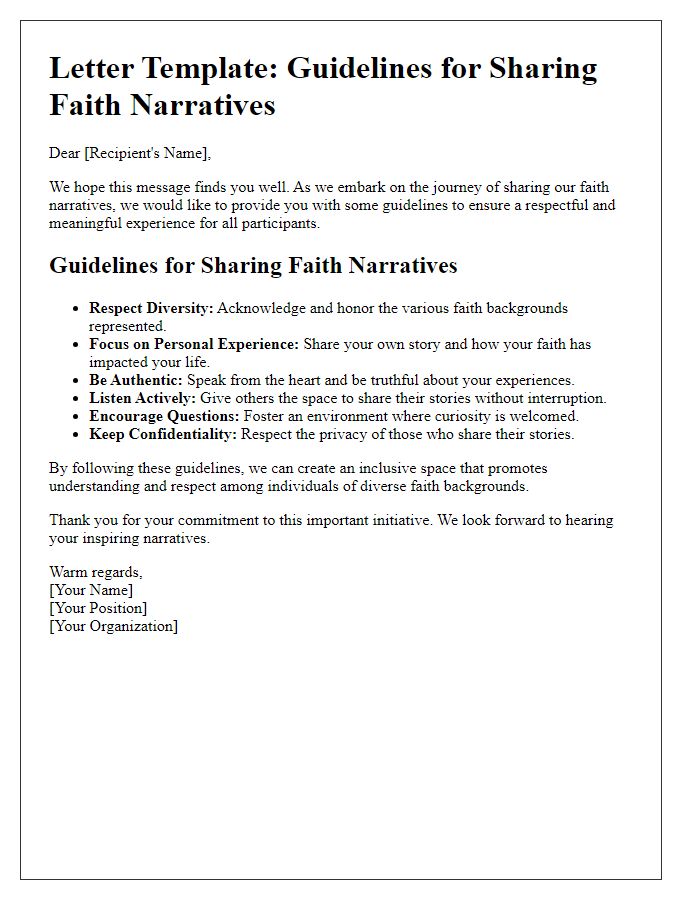
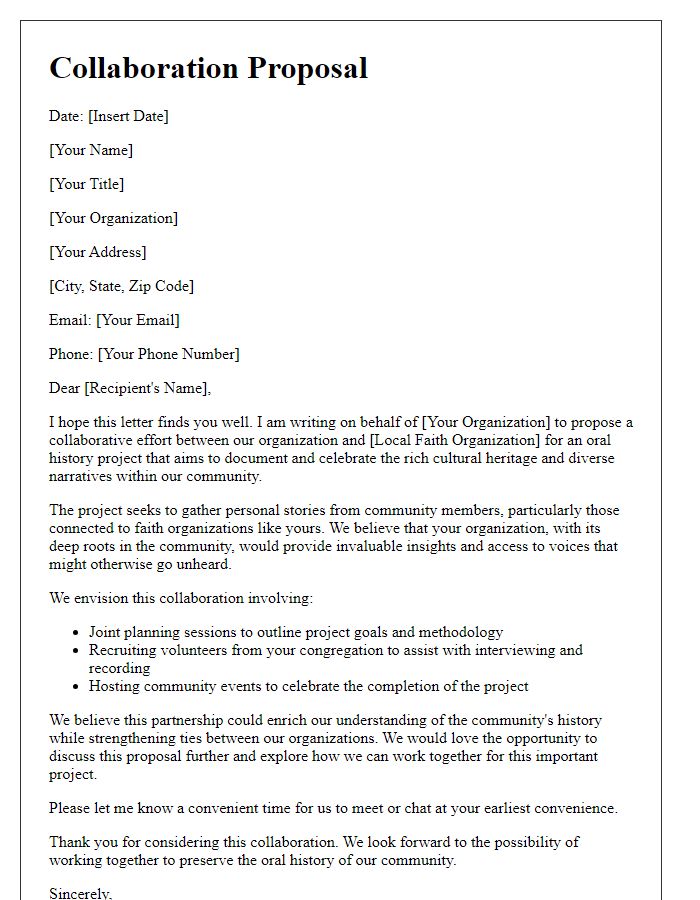

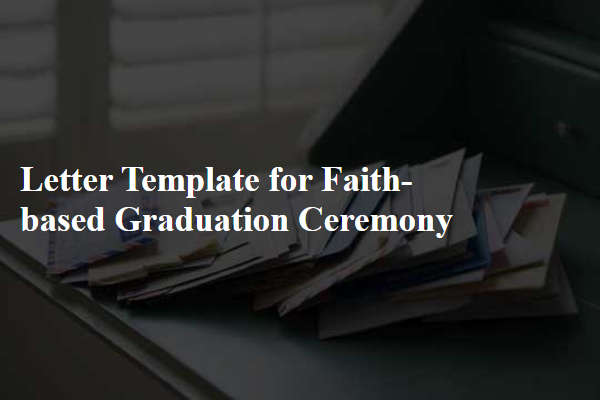
Comments